7 Best Herbal Creams For Fungal Skin Infection

Herbal creams for fungal skin infection are topical treatments made from natural herbs and plants that help to combat fungal infections such as ringworm, athlete's foot, and jock itch.
These creams offer several benefits, including being non-toxic, non-irritating, and gentle on the skin, making them an attractive alternative to traditional antifungal medications.
Examples of herbal creams used to treat fungal skin infections include tea tree oil, neem oil, aloe vera, calendula, and eucalyptus, which are known for their antifungal and antibacterial properties that help to soothe and heal the affected area.
Additionally, some herbal creams, such as those containing turmeric and ginseng, may also help to reduce inflammation and promote the growth of new skin cells, further aiding in the recovery process.
According to "Advances in experimental medicine and biology", creams for fungal skin infection may benefit from incorporating natural approaches, such as essential oils and plant extracts, which have shown promising antifungal activity.
Below there's a list of the 7 best herbal creams for fungal skin infection.
- 1. Melaleuca alternifolia creams
- 2. Lavandula angustifolia creams
- 3. Thymus vulgaris creams
- 4. Eucalyptus globulus creams
- 5. Aloe barbadensis creams
- 6. Calendula officinalis creams
- 7. Hypericum perforatum creams
Also you may be interested in...
TODAY'S FREE BOUNDLE
Herb Drying Checklist + Herbal Tea Shopping List + Medicinal Herbs Flashcards
Enter you best email address below to receive this bundle (3 product valued $19.95) for FREE + exclusive access to The Aphotecary Letter.
$19.95 -> $0.00
1. Melaleuca alternifolia creams
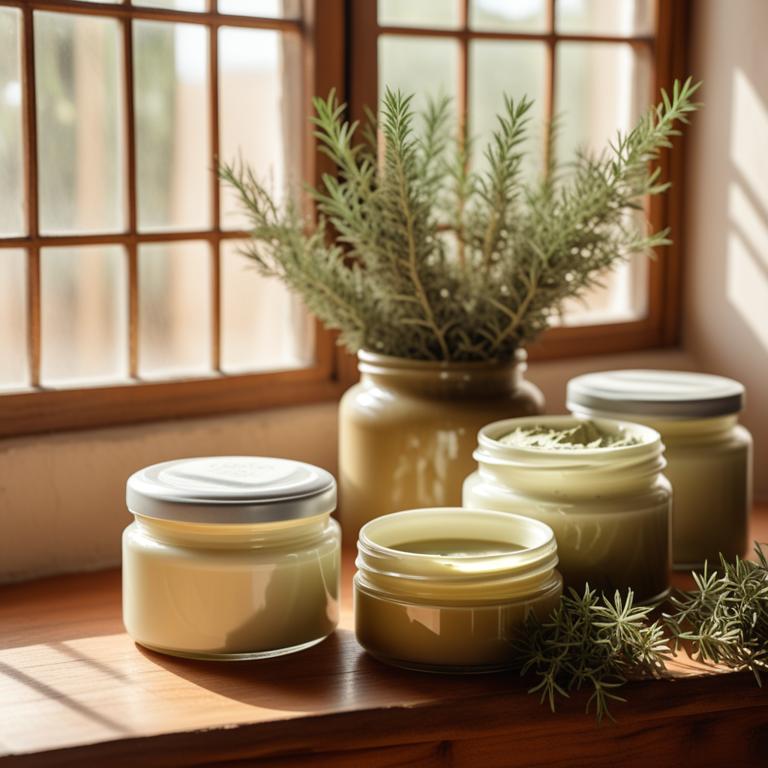
Melaleuca alternifolia creams, also known as tea tree oil creams, are a popular herbal preparation used to treat fungal skin infections such as athlete's foot and ringworm.
The antifungal and antibacterial properties of Melaleuca alternifolia creams help to reduce the growth of fungal and bacterial populations, thereby treating the infection.
The bioactive constituents of Melaleuca alternifolia creams, including terpinen-4-ol and cineole, are responsible for its antifungal and antibacterial properties, which help to combat fungal skin infections.
The benefits of using Melaleuca alternifolia creams to treat fungal skin infections include reduced symptoms, improved skin health, and a lower risk of complications and recurrence.
Related Study
According to "Mycopathologia", Melaleuca alternifolia creams may be useful for treating fungal skin infections due to the essential oil's demonstrated antimicrobial activity against P. insidiosum, an oomycete that can cause pythiosis.
2. Lavandula angustifolia creams
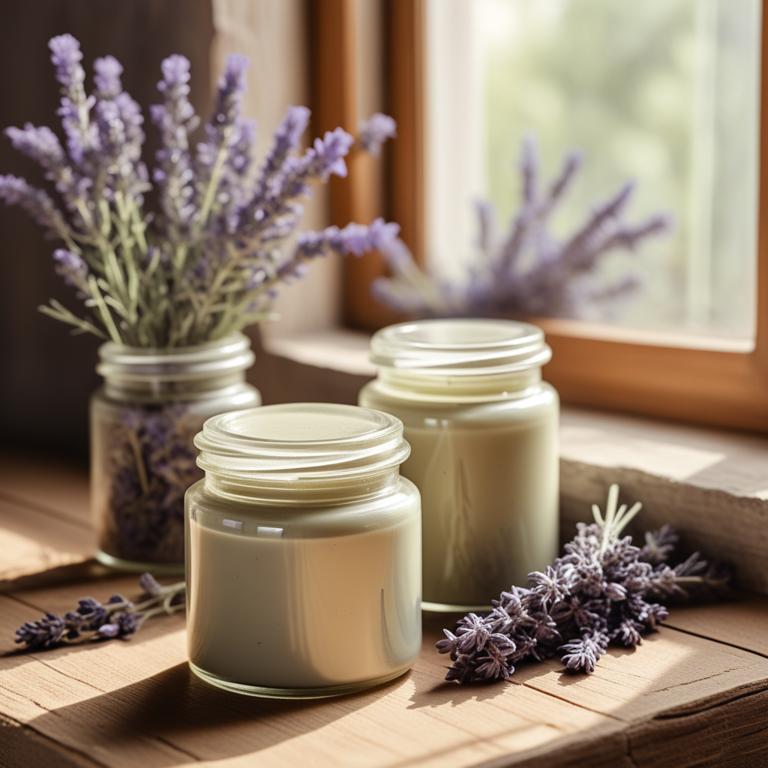
Lavandula angustifolia creams have been traditionally used to treat the fungal skin infection ailment, specifically onychomycosis, due to their antimicrobial and antifungal properties.
The bioactive constituents of Lavandula angustifolia, including linalool and linalyl acetate, help to inhibit the growth of fungi and bacteria, thereby promoting the healing of infected skin.
By applying Lavandula angustifolia creams to the affected area, individuals can experience relief from symptoms such as itching, redness, and discomfort, ultimately leading to a reduction in the severity of the infection.
The benefits of using Lavandula angustifolia creams for this ailment include improved wound healing, reduced inflammation, and enhanced overall skin health.
Related Study
According to "BMC complementary and alternative medicine", Lavandula angustifolia creams for fungal skin infection may be beneficial due to the essential oil's good activity against Candida spp., as shown in the study where lavender oil displayed a moderate activity by both the broth microdilution method and the vapour contact assay.
3. Thymus vulgaris creams
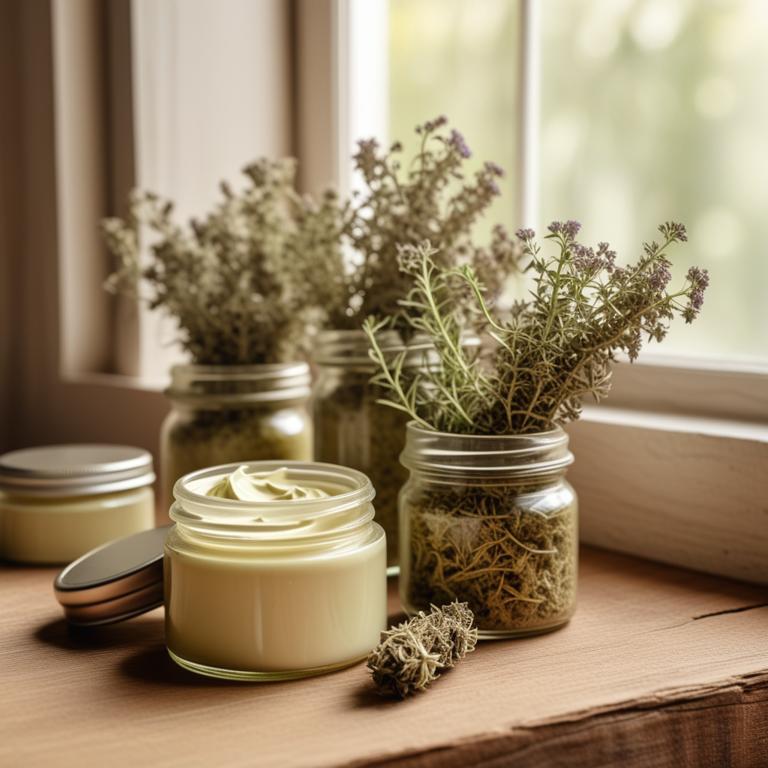
Thymus vulgaris creams, derived from the herb thyme, have been traditionally used to treat fungal skin infections such as athlete's foot and ringworm.
The antifungal properties of thyme are attributed to its bioactive constituents, including carvacrol, thymol, and eugenol, which have been shown to exhibit potent inhibitory effects against fungal growth.
Thymus vulgaris creams help to treat fungal skin infections by reducing inflammation, promoting wound healing, and inhibiting the growth of fungal pathogens, thereby alleviating symptoms such as itching, redness, and scaling.
The benefits of using Thymus vulgaris creams to treat fungal skin infections include their natural origin, non-toxicity, and ease of application, making them a popular alternative to conventional antifungal medications.
Related Study
According to "Journal of the European Academy of Dermatology and Venereology : JEADV", Thymus vulgaris creams for fungal skin infection have shown potent antifungal activity, particularly in inhibiting germ tube formation and causing extensive lesions of the cell membrane in Candida spp.
4. Eucalyptus globulus creams
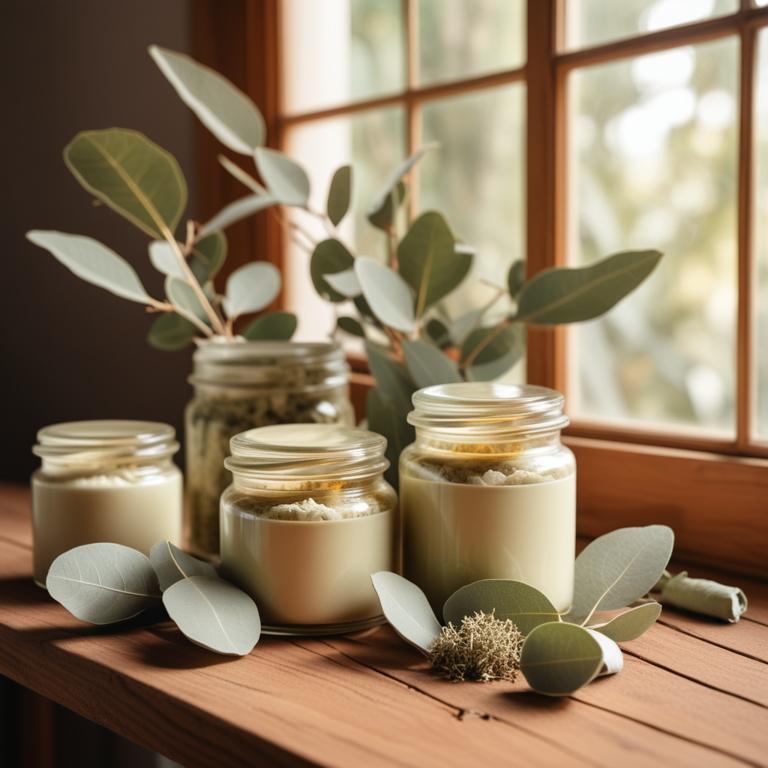
Eucalyptus globulus creams have been traditionally used to treat fungal skin infections such as athlete's foot and ringworm due to their potent antimicrobial and antifungal properties.
The herbal preparation in these creams helps to treat this ailment by inhibiting the growth of fungi and bacteria, thereby reducing inflammation and promoting healing.
The bioactive constituents of Eucalyptus globulus, including flavonoids, phenolic acids, and terpenoids, contribute to its antifungal activity and ability to soothe and calm the skin.
The benefits of using Eucalyptus globulus creams to treat fungal skin infections include reduced symptoms, accelerated healing, and a decrease in the risk of recurrence.
Related Study
According to "Infectious disorders drug targets", Eucalyptus globulus creams have been identified as a potential natural remedy for treating fungal skin infections, along with other herbal products such as Aloe, Neem, and Ginger.
5. Aloe barbadensis creams
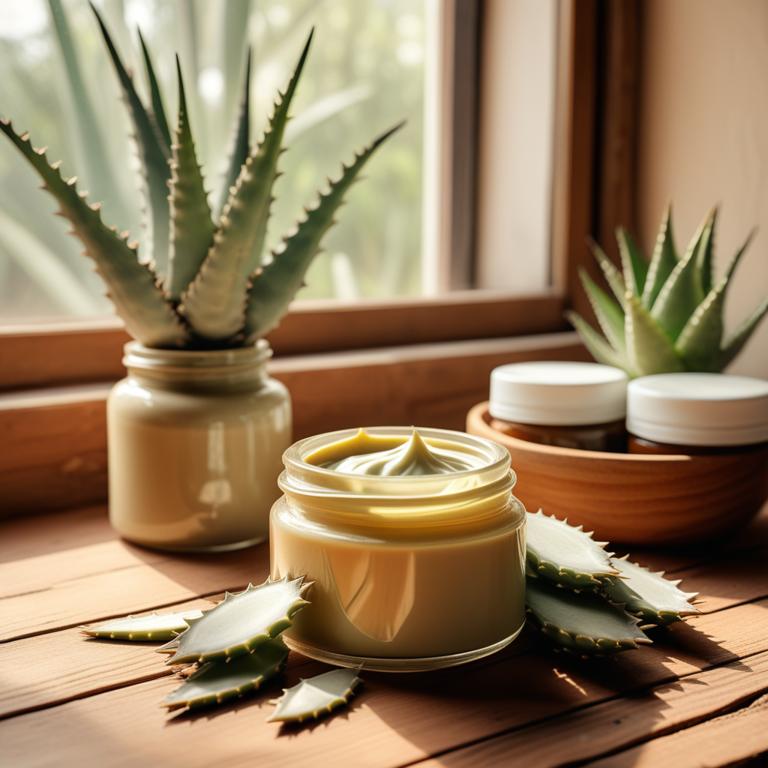
Aloe barbadensis creams have been traditionally used to treat the fungal skin infection ailment, such as ringworm and athlete's foot, due to their antifungal and antibacterial properties.
The herbal preparation's ability to soothe and calm the skin, reduce inflammation, and promote wound healing also helps to treat this ailment.
The bioactive constituents of Aloe barbadensis, including aloin, aloe-emodin, and acemannan, have been found to exhibit antifungal activity, which helps to combat fungal infections.
The benefits of using Aloe barbadensis creams to treat fungal skin infections include reduced symptoms, accelerated healing, and minimal side effects, making it a popular natural remedy for this condition.
Related Study
According to "Infectious disorders drug targets", Aloe barbadensis creams for fungal skin infection can be used as a natural remedy with lower price and fewer side effects compared to modern medicines.
6. Calendula officinalis creams
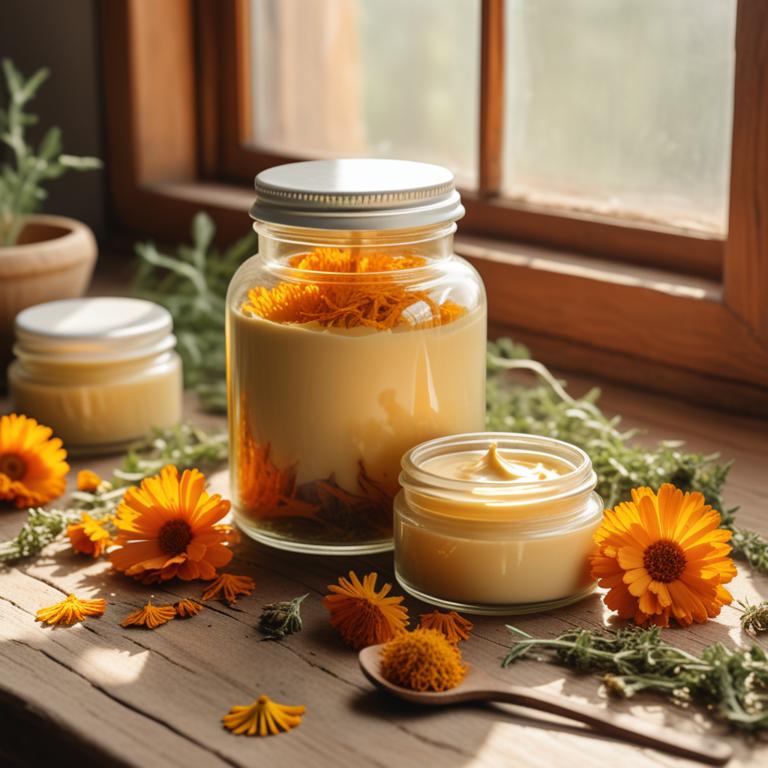
Calendula officinalis creams have been traditionally used to treat the fungal skin infection ailment, particularly fungal infections such as athlete's foot and ringworm, due to their anti-inflammatory and antifungal properties.
The bioactive constituents of Calendula officinalis, including triterpenoids, flavonoids, and carotenoids, help to combat fungal infections by inhibiting the growth of fungal pathogens and promoting wound healing.
These herbal preparations also exhibit antimicrobial and antiseptic properties, which aid in preventing further infection and promoting a healthy skin environment.
By using Calendula officinalis creams, individuals can benefit from their natural and gentle approach to treating fungal skin infections, reducing the risk of scarring and promoting faster recovery.
Related Study
According to "BMC veterinary research", Calendula officinalis creams for fungal skin infection have been shown to have broad-spectrum antifungal effects, including against antibiotic-resistant fungi, making them a promising option for the treatment of dermatophytosis in dogs.
7. Hypericum perforatum creams

Hypericum perforatum creams have been used traditionally to treat the fungal skin infection ailment, specifically for ringworm and athlete's foot.
The antifungal and anti-inflammatory properties of this herbal preparation help to treat the ailment by reducing fungal growth and soothing the skin.
The bioactive constituents of Hypericum perforatum, including naphthoquinones and flavonoids, exhibit potent antifungal activity and help to inhibit the growth of fungal pathogens.
The benefits of using Hypericum perforatum creams to treat fungal skin infections include reduced symptoms, accelerated healing, and improved skin health.
Related Study
According to "BMC veterinary research", Hypericum perforatum creams for fungal skin infection have been shown to have broad-spectrum antifungal effects, making them a potential new option for the treatment of dermatophytosis in dogs.